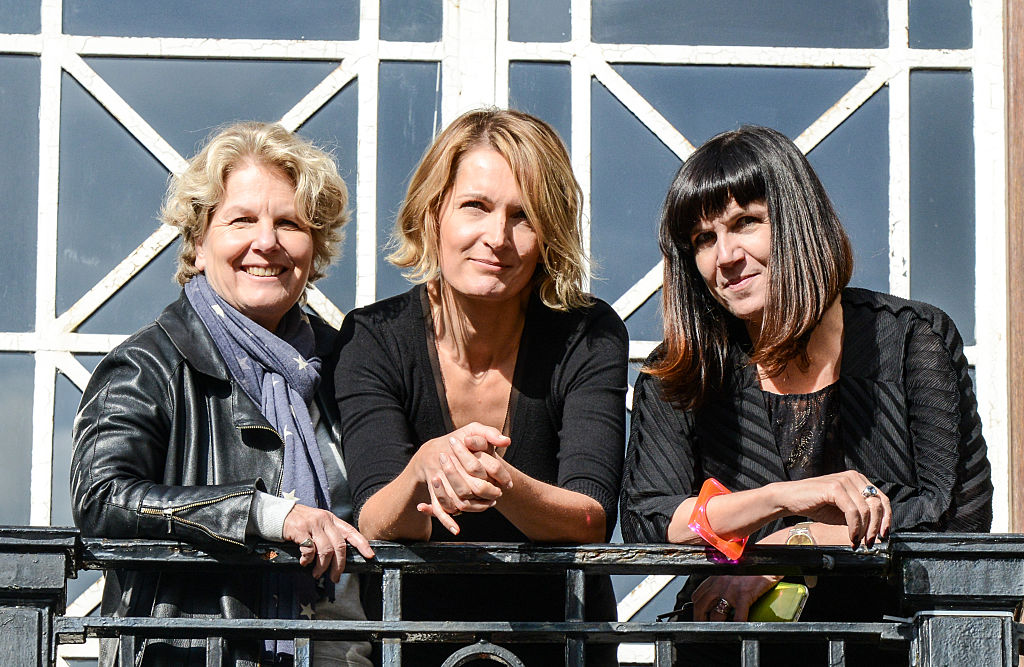Members of the Women’s Equality Party (WEP) have been left sobbing after the leadership supported a motion to close the party. In an article in the Observer, WEP’s founders Catherine Mayer and Sandi Toksvig, announced that after a decade of dilettante feminism they were reluctantly taking the decision because of a “changed political landscape”.
“The Tories’ attempts to contain the electoral threat from the hard Right has instead seen them fully captured by it,” opined the pair, adding of the Labour Party: “The leadership barely listens to its MPs and wider membership, so it is hardly likely to pay heed to us.”
But why should politicians listen to the views of women who have virtue-signalled themselves into oblivion? Ultimately, the party failed the Ronseal test when it was unable to define the word “woman”, let alone advocate for people who were, until recently, widely understood to be adult human females. After her election as leader of the WEP in 2019, Mandu Reid told Pink News that “transwomen are women […] but they’re women among a rich tapestry of what it means to be a woman, of which we all are a part.”
In an instant Reid reduced the reality of womanhood to metaphorical soft furnishing. This put WEP on the side of those advocating for men’s right to identify into women-only prisons, changing rooms and hospital wards.
Sophie Walker, who led WEP from 2015 to 2019, warned Reid not to support a policy of gender self-identification, writing in an open letter: “I don’t know how you write policies for women, if anyone can be a woman.” Yet Walker herself is not without blame; it was under her leadership that the first scalp was taken, when academic Dr Heather Brunskell-Evans was pushed out of her role within the party for publicly questioning the idea that children should be affirmed in cross-sex identities.
Arguably, it was Walker’s parting shot marked the real end of the party. When announcing her resignation, she claimed to be “frustrated by the limits of my own work to ensure that women of colour, working class women and disabled women see themselves reflected in this party and know they can lead this movement”. Unsurprisingly, this sowed division. It suggested that simply being born a woman was not good enough, and that the party ought to focus on identity politics rather than feminism.
Yet in the years since Reid took over WEP, a bold, energetic grassroots movement has coalesced around the threat to women’s rights from trans activism. Women from all backgrounds meet to share their stories of being harassed, abused and cancelled. There is even a new political party, the Party of Women (POW), which was founded without celebrity backing or cash and managed to stand 16 candidates in the general election. Compared to this rising tide of women’s rights activists, the WEP is at best an irrelevance, and at worst an embarrassment.
There are, of course, many pressing issues that deserve both feminist analysis and politicians’ attention. Whether that’s the failure to tackle grooming gangs, the exploitation of women’s bodies in surrogacy or the prevalence of pornography, women are still getting a raw deal. Yet, the WEP opted not to tackle such tricky problems, opting instead for politics by hashtag.
In this vein, Toksvig recently berated women like those in the POW who want single-sex toilets, telling them to “shut up”. Meanwhile the Women’s Equality Party is so in thrall to fashionable causes that it even overlooks male violence when it is inconvenient. Last week when firearms officer Martyn Blake was cleared of the murder of Chris Kaba, a violent criminal who had abused his girlfriend, the WEP posted on social media that it was “both terrifying and outrageous to hear politicians say the police should be scrutinised less after they kill unarmed members of the public. No justice, no peace.”
It seems, to the minority who share the values of the celebrity class, being a trans ally and calling out white supremacy are sexier causes than boring old women’s rights. Yet, clearly, the majority of politically inclined women who have no option but to use the public services captured by such trendy ideologies disagree.
This is how the WEP has ended; not with a bang, but with a confused whimper.











Join the discussion
Join like minded readers that support our journalism by becoming a paid subscriber
To join the discussion in the comments, become a paid subscriber.
Join like minded readers that support our journalism, read unlimited articles and enjoy other subscriber-only benefits.
Subscribe